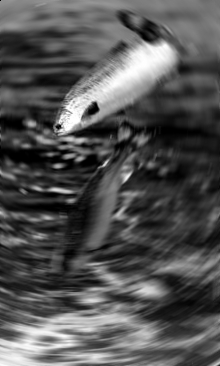Salmon plan lands
 The Tasmanian government has released a Salmon Industry Plan aimed at reviving public support for the island's salmon industry.
The Tasmanian government has released a Salmon Industry Plan aimed at reviving public support for the island's salmon industry.
The Tasmanian salmon sector has lost its social licence over the past years, according to Primary Industries Minister Jo Palmer.
Ms Palmer has called on Tasmanians to read the Salmon Industry Plan and give the industry a chance, describing critics of the salmon industry as a “very small, but very noisy group of people”.
The plan has drawn criticism from Tasmanian Green MP Rosalie Woodruff, who described it as a “cynical public relations exercise with very little detail”.
The plan lists 11 priorities, including developing new environmental standards, encouraging companies to switch to farming further offshore, and requiring companies to keep young fish in enclosed hatcheries for longer.
Companies will also be required to foot the cost of the government managing the industry from July.
The review commits to a revised salmon farming data portal and new wildlife interaction and management standards, referring to seals specifically but providing no other details.
While the government has dropped its former highly promoted target to double the industry by 2030, the plan includes a regulatory framework that allows the salmon industry to increase in size.
Critics have complained that the plan provides no targets, commitments, limits, or definitions to change the current situation.
Despite criticism, Ms Palmer and Ian Dutton, the director of marine resources at the Department of Natural Resources and Environment Tasmania, say that surveys by the salmon companies have found there is a small but vocal minority opposed to the salmon industry.
The government will also develop exclusion zones where there are no existing leases, including areas in the Furneaux Islands, off the north-east coast.
Industry group Salmon Tasmania chairman Lyall Howard expressed concern about the plan, saying that it imposed levies “on a successful industry”.
The three salmon producers in Tasmania are all foreign-owned since Tassal was bought by Canadian seafood giant Cooke in 2022. Huon Aquaculture was acquired by Brazil's JBS Foods in 2021, and Petuna was taken over by New Zealand's Sealord in 2020.








 Print
Print